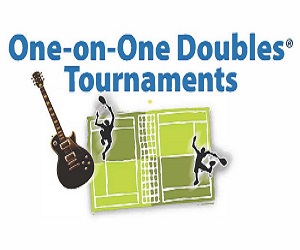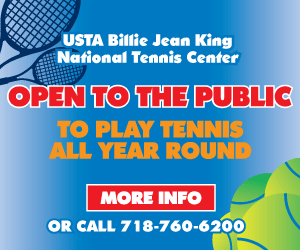Confidence: A Player’s Secret Weapon, How to Find It and How to Use It

One of a player’s greatest tools is confidence, yet very few know how to develop this state of mind. Most tennis matches are won or lost before the first serve is struck based upon who holds the most confidence. It’s true that practice, excellent ground strokes, a powerful serve, good coaching, proper rest, natural talent, sufficient support and proper nutrition all matter a great deal, but all those things are still no guarantee that you bring confidence onto the court.
Young players are often aware of who their opponent is and how highly they are ranked. This fact usually determines confidence and also the outcome of a match. This is based upon a number of psychological theories, including Leon Festinger’s “Cognitive Dissonance Theory.” Festinger was a Stanford University Professor in Social Psychology who suggested that people desire mental equilibrium and that they desire to fulfill inner expectations. Expectations have a large impact on a person’s behavior and ability to succeed. When applied to tennis, this means that it is mentally conflicting for a player of lesser rank to beat a player of higher rank. Reputation matters and matters a great deal. The more you are aware of your rank compared to your opponent, the more power it will have over the outcome of the match.
I have seen this dramatically demonstrated many times across a variety of sports. I recall watching a first round match on an outer court at the U.S. Open years ago where a virtual unknown was in the process of beating a highly-ranked and highly-favored opponent. The unknown was up four games to none in the second set after winning the first set easily. It couldn’t have been more obvious that this unknown was on the verge of beating one of the tournament favorites. Then, something odd started to happen. It was as if the unknown player had lost all memory of how to play tennis and proceeded to lose point after point until she finally lost the match. I would say that the reputation of the highly-ranked player was what actually defeated the opponent. The Cognitive Dissonance that was felt inside the unknown was so great that it forced itself upon the player and insured that the match would end as everyone expected it to end with the more highly ranked being on top.
This scenario happens time after time and is due to the sudden loss of confidence brought on by the awareness that the unknown was going to do the impossible.
Every tennis player on Earth knows that this issue is real, but the question is what can be done about it. Here is how I coach my players:
1. Do not look at rankings at all before your match. The rankings may satisfy your curiosity, but they in no way help your mental state. If you are more highly ranked, you will go easy on the opponent and not take them seriously. If you are of a lower ranking than your opponent you will lose confidence, feel intimidated and expect to lose.
2. When you get to the match try your best to ignore your opponent, do not socialize and essentially stay in your bubble. This is the time to gather all of your strength, all your focus and your will to win. Silence tends to be your friend, silence and the will to win. Opponents will often do things either consciously or unconsciously to distract you, and it is your job to ignore it all. Act like a duck and have all these social distractions be like water rolling off your back.
3. You will find that if you can maintain your focus, remain silent and have minimal visual and verbal interaction, you will feel more confident, be far less prone to feel intimidated and find yourself winning more and more.
Confidence can be established by winning more often and by recalling your wins. Confidence turns out to be a fragile thing, and you must learn to guard it jealously. One way to do this is by ignoring your opponent and everything about them. The best at this was Tiger Woods who ignored his opponents so well that they actually began to feel invisible. They watched him, he never watched them and the next thing they knew, he was hoisting another trophy with a great big smile. This is how a winner stays a winner.






